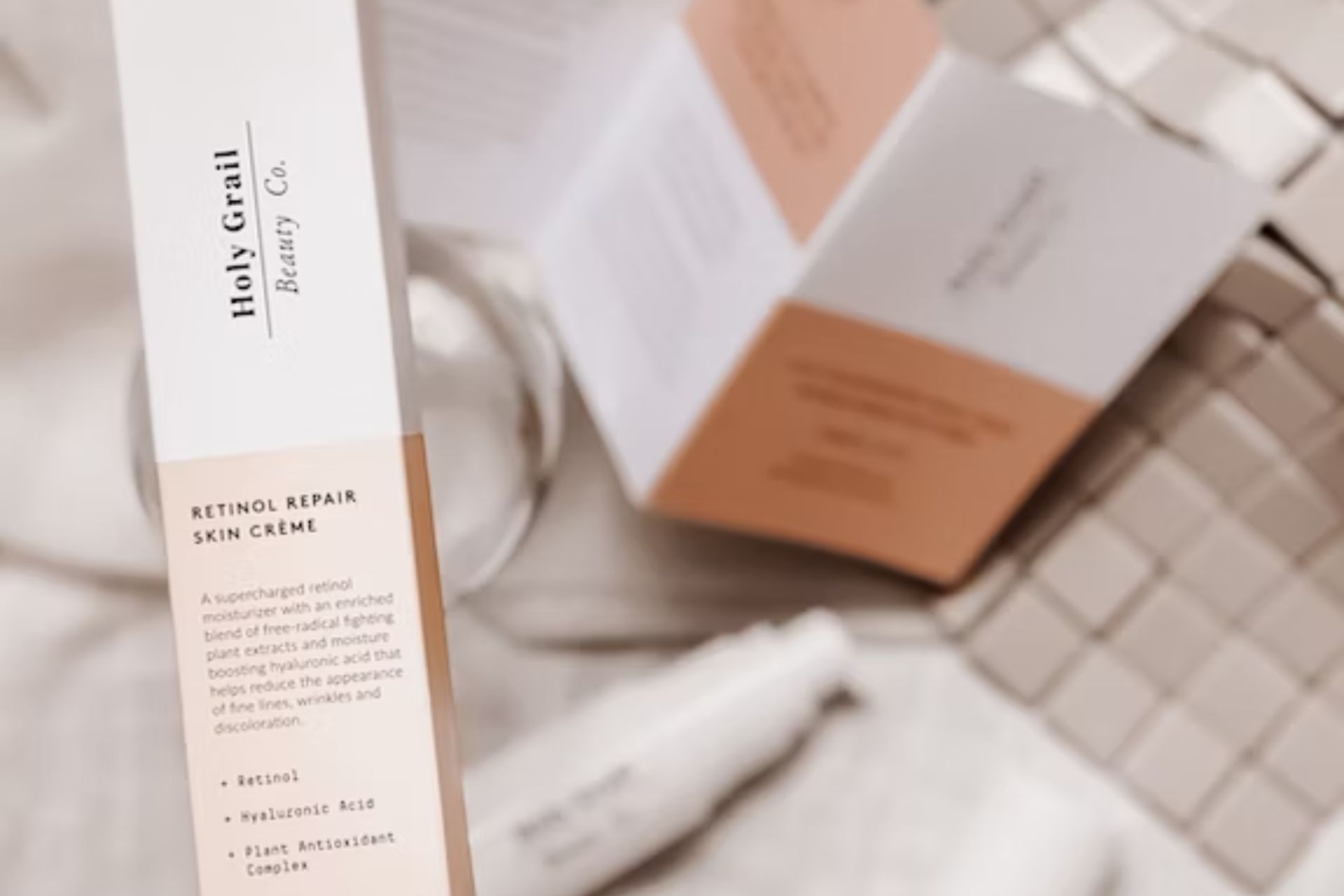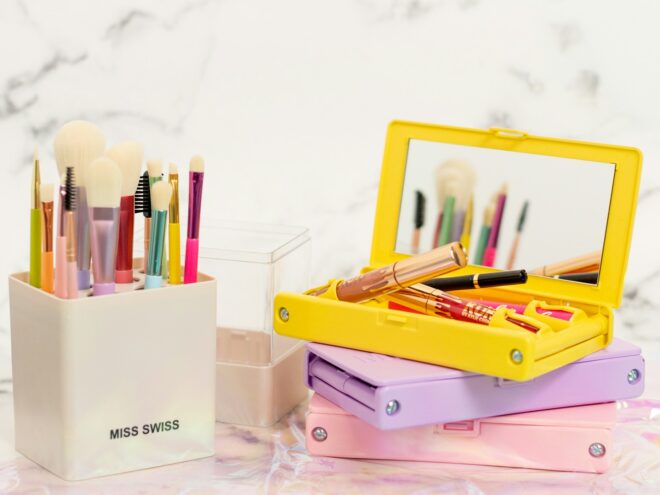Skincare • 08/11/2023
The 5 Magic Benefits of Retinol for Skin

Revivalist is a reader-supported endeavor and our posts may contain affiliate links. When you buy through links on our site, we may earn an affiliate commission.
Retinol is a miracle product that many people have started implementing into their skincare routine since it became an over-the-counter product. The benefits of retinol for skin are like magic, as it can make you look and feel healthier — if you know how to use it correctly. Otherwise, you may experience a few drawbacks as you try to step into the world of retinol too quickly. Here are some of the best perks of using retinol and a small guide on how to get started with it.
What Is Retinol?
Retinol is a substance derived from Vitamin A and is part of the same family as products. It can renew the growth and look of your skin, often leading to a younger appearance in people who use it regularly and wisely. The benefits of retinol for skin include looking more youthful, but that isn’t all — it can exfoliate your face and help you feel better in your own skin.
You can find retinol on the same shelf as your other skincare products. However, if this concentration of retinol isn’t strong enough for you, you may need to visit a dermatologist for something that’s prescription strength. Ask a skincare professional what’s right for you. When in doubt, rely on the experts to know exactly what to use for what you need — they might even recommend something stronger than retinol, like tretinoin.
Regular Retinol Use: 5 Benefits
Once you understand the magic benefits of retinol for skin, you’ll want to start bringing it into your routine however you can. While you may not be able to use retinol every day, especially in the beginning, you may begin to notice some of these benefits before too long of using it. Slow and steady is the way to go — but you should see a difference over time with just weekly application.
1. Unclogs Pores
Pores are a normal part of being human. You can’t erase your pores entirely, as they’re necessary for your skin to breathe. They secrete oil and sweat, helping your body function well on the base level. Sometimes, pores get clogged, leading to acne or rough texture. Retinol can unclog your pores and diminish their appearance, making them less noticeable to other people.
2. Increases Collagen Production
As humans age, the collagen in their bodies starts to break down. Nothing stays the same forever, especially not in the human body, but certain habits can deplete collagen faster. Spending too much time out in the sun is just one way to damage your collagen, while others involve too much alcohol in your diet or smoking too often. Luckily, retinol can help boost collagen levels in your body, helping with skin elasticity and joint health.
3. Leads to a More Youthful Appearance
Since collagen is what keeps your skin looking plump and improves its elasticity, you’ll likely end up with a less aged appearance than if you didn’t use retinol. Many people start using retinol at the first signs of aging to almost turn back the clock and help reduce the appearance of wrinkles or fine lines that have begun to form.
4. Clears Acne
Acne often pops up due to clogged pores, which retinol clears out. You shouldn’t necessarily use retinol to treat your acne, but you may notice less of it as a side effect of upping the quality of your skincare routine and introducing retinol into the rotation. The acne medication market is worth over $10 billion, but instead of buying costly treatments, you may be able to rely on retinol to help with your problems.
Additionally, retinol might help diminish dark spots or scarring from acne gone wrong. If you picked at your acne in the past, you may have noticed it left a mark you can’t quite get rid of. Regular use of retinol may decrease the inflammation of acne scars, but it might not make them vanish entirely.
5. Fades Stretch Marks
You’ll see results wherever you apply retinol if you’re patient enough to wait for them. Retinol can be useful in diminishing the stretch marks that form from weight gain, weight loss, pregnancy and other moments in life. Because your skin is stretching to accommodate your body, you may notice the red or pinkish marks fade into a silvery or translucent color with time. Retinol can help lessen their appearance and help you feel more confident. Talk to a health care specialist before using retinol on stretch marks while pregnant.
When and How to Use Retinol
First, you must have a regular skincare routine down pat before attempting anything with retinol. The basics of cleansing and moisturizing your face should be something you don’t even have to think about when you get ready for the day or retire to bed in the evening. It’s an advanced skincare product that can work wonders, but it has to be used responsibly.
Unfortunately, retinol isn’t for everyone. Some people might have too sensitive skin for it to work well, or a certain kind might not be strong enough for your needs. However, you can’t start off too strong. It might take a few weeks to see the results you want, even if the retinol starts to work right away. As with any other skincare product, patience is key.
At What Age Should You Start Using Retinol?
There is no right or wrong age for when people should start using this skincare must-have. The benefits of retinol for skin can be felt no matter your age, but many people start using it as young as in their 20s. You can ask your dermatologist when they think you should implement it into your routine.
How Often Should You Use Retinol On Your Face?
The skin on your face is a bit thinner and more sensitive to what you put on it. While you might be able to use retinol on your body daily, you’ll want to be a bit more careful with your face. When you first start using retinol, you may want to include it in your routine only once or twice a week — and only at night because it makes you more sensitive to the sun’s rays.
Skin cycling is a great way to adjust your routine to make room for all the products you want to use. For example, for your retinol to penetrate your skin barrier better, you could use it on the day after you exfoliate your skin. Skin cycling is also a great opportunity to give your face a break from various chemicals and products while also giving it what it needs to stay healthy and look nice.
What to Avoid When Using Retinol
Because retinol can be a more potent product, you may have to adjust your regular skincare routine to adapt to it. Moisturizers should be one of your go-to products when incorporating retinol into your routine, but other things should be avoided entirely.
Some of the products you shouldn’t pair with retinol include the following:
- Glycolic Acid
- Benzoyl Peroxide
- Vitamin C
- Broken Skin or Sunburn
- Sunlight — only use retinol at night!
Additionally, you should avoid applying too much retinol all at once. If your skin isn’t used to it, you might see redness or peeling. Scale back to a lower concentration or use it less often if it does more harm than helping your skin. Over time, your sensitive skin might build up a tolerance for it, and you can watch retinol work its magic.
Reap the Benefits of Retinol for Skin
Not everyone needs or wants to use retinol, and that’s okay. You shouldn’t feel forced to include a product in your skincare regimen if you don’t think it’ll serve you well. However, the benefits of retinol for skin are unmatched, and since you can get lower concentrations of retinol easily, it might be worth trying out. You never know when just a slight adjustment to your routine can rejuvenate your skin and help you feel more like yourself. Try out retinol and see how it improves your skin.
Subscribe to Our Weekly Newsletter
We would love to connect deeper with you!


